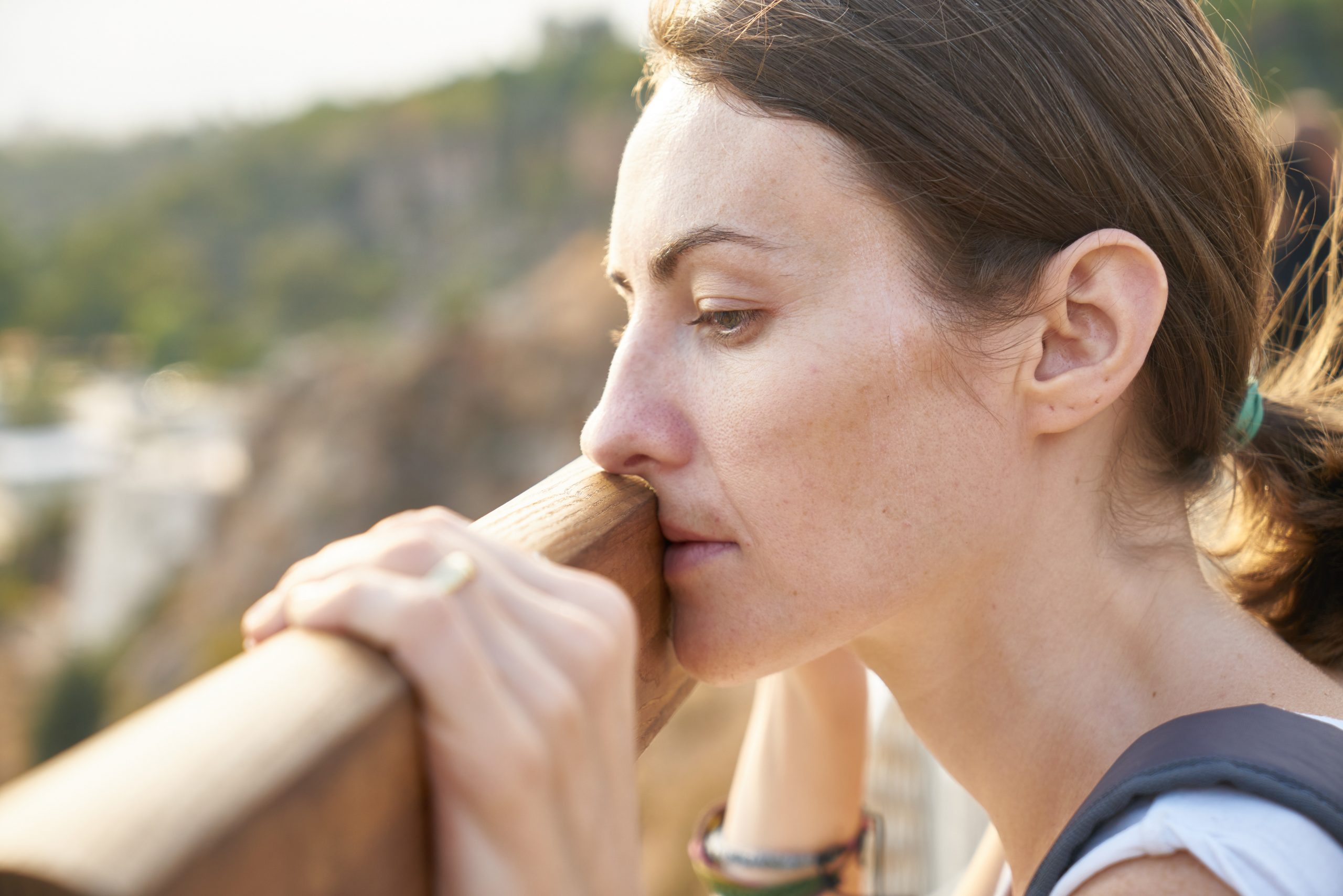 Last week, a young woman I grew up with in church youth group committed suicide.
Last week, a young woman I grew up with in church youth group committed suicide.
Allison was 32 years old, beautiful and well-loved, with a husband and a four-month-old daughter. So why? Postpartum depression.
That is haunting to me, knowing so many women battle this same issue. Myself included.
My story
My journey with depression started at age 20, not long after my husband and I got engaged and I was facing a lot of new changes and decisions. My mother, familiar with the song and dance, sent me to a psychologist, where I talked for two sessions and got a very good prescription that helped me greatly – until I was considering trying to conceive and needed to go off it.
I managed OK through the months of trying to conceive and my pregnancy with my first child. But I was so frightened that I would have postpartum depression, given my history with depression triggered by life change, that I all but begged my OB to put me on medicine before she was even born.
Everything was fine when she was born. And then we moved to Chattanooga from Nashville. We couldn’t sell our condo. We didn’t know anyone. I quit work and became a stay-at-home mom. And one month after we moved, I got pregnant again, when my daughter was 17 months old.
I was so sick at the beginning that I couldn’t take my antidepressants or any medicine, but once that settled down, I went back on a smaller dose. I was on it all the way through my labor and delivery. But here’s the thing:
I barely remember the first year of my second child’s life.
Even on medicine, I was incredibly depressed, we were going through foreclosure, we didn’t have any close friends, and I felt isolated at home and lived a 14-hour drive from my parents. There was a time when I was crying uncontrollably and was honestly scared for my kids, and I called a church member who had been kind to me and asked her to take my kids away.
Not everyone who encounters postpartum depression has the experience with depression that I do. After nearly a decade and a half of recognizing my triggers and when, even on medicine, things aren’t right, I have a game plan of self-care. I know that with the right medicine, exercise, sunshine, time alone, and time with friends, I can usually come back to my normal self. My husband, while not dealing with depression himself, knows me well enough to ask at some points if I am taking my medicine, if I need any kind of help, etc.
I know the lies that depression tells. I have had the thoughts that my kids would be better off without me. But with experience, I can recognize that IT IS A LIE.
I am scared for those with PPD who have never encountered depression before. Who might not realize what’s going on and that their heads are feeding them lies.
Here is my plea to the brand-new mamas:
If you feel like things are off, please tell someone. Depression manifests in a lot of different ways. (I loved this article by Megan Tietz a few years ago; she didn’t realize she had PPD because the symptoms were not what she expected.) I know you expect to feel different because you just had a baby. Being insanely tired will do crazy things to you, all by itself. But please, please, don’t try to hide your thoughts, doubts, or hurts from your partner or friends. Nobody has it all together like you think they do. Struggling with depression or anxiety is not sinful or embarrassing – it is a health issue that can be addressed.
I don’t want any family to go through what Allison’s family is experiencing right now, or any new mom to think she would have to take her own life to get rid of the intense pain.

















Beautiful. I shared with Sarah Bloom NBC12 in Richmond. Hoping to raise awareness abd certainly appreciate your contributions
[…] down right traumatized by the nausea, vomiting, traumatic delivery of your child, and subsequent PPD and anxiety that had you thinking you were for real losing your mind for an entire year of your […]
Comments are closed.